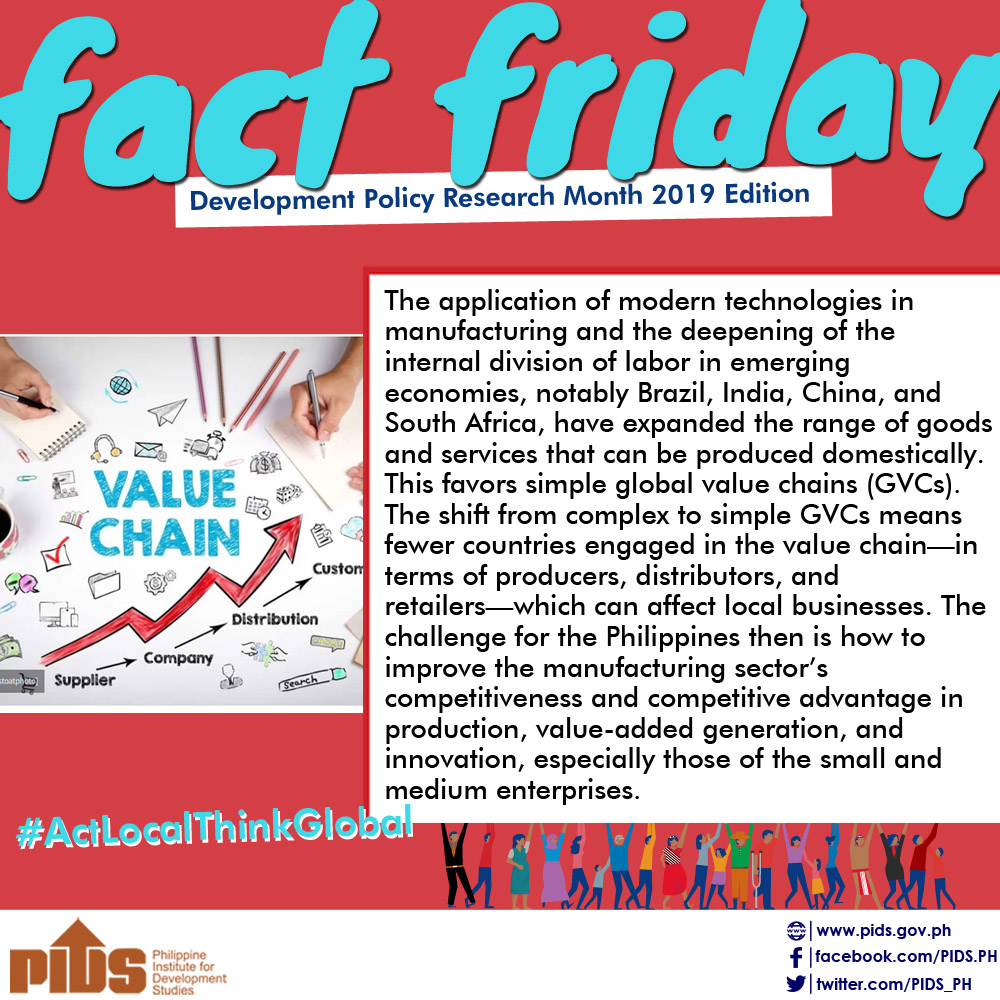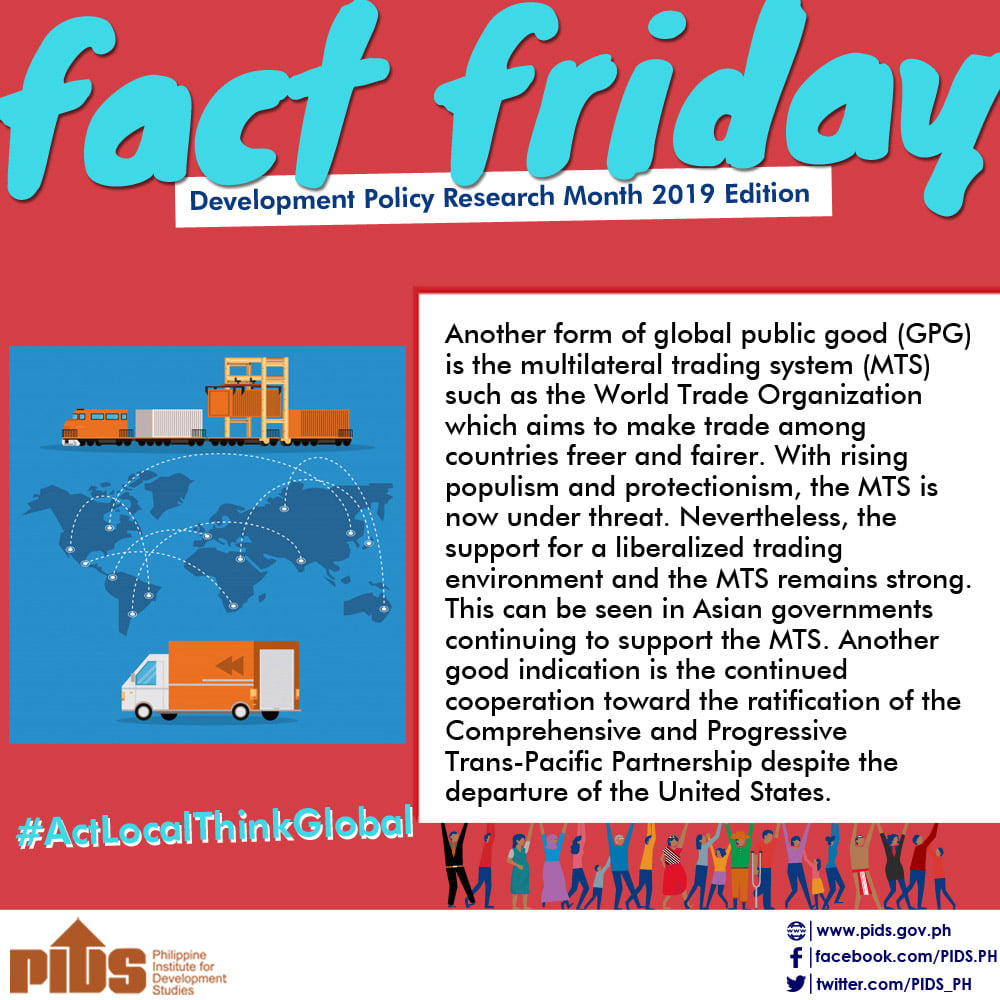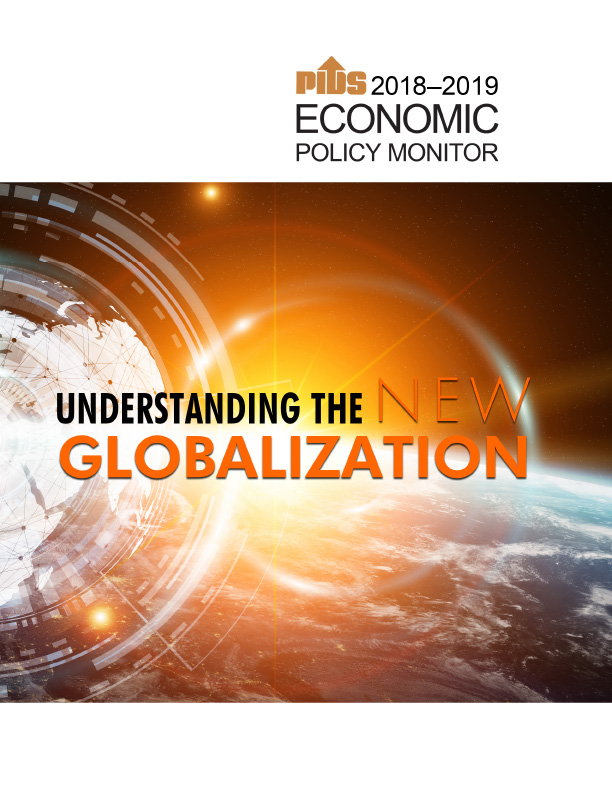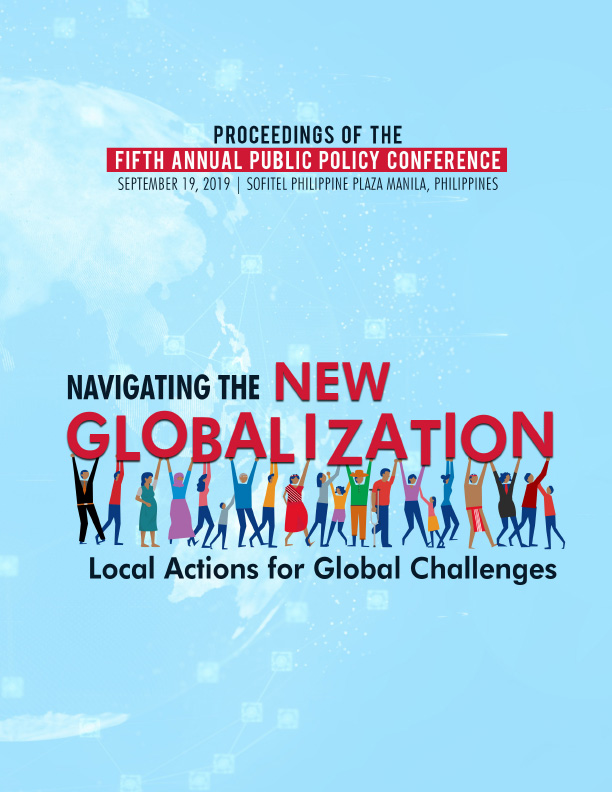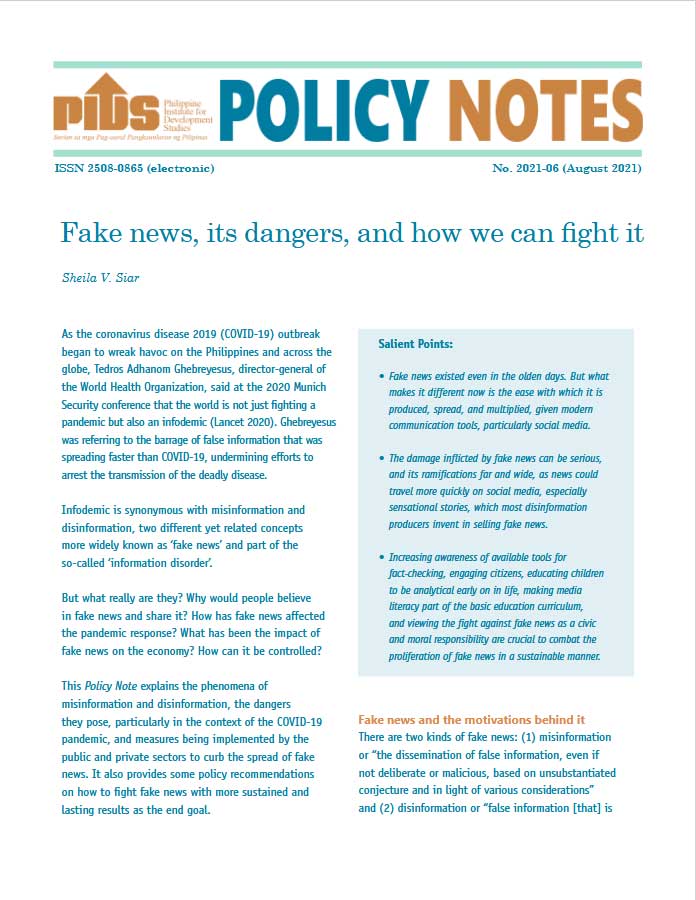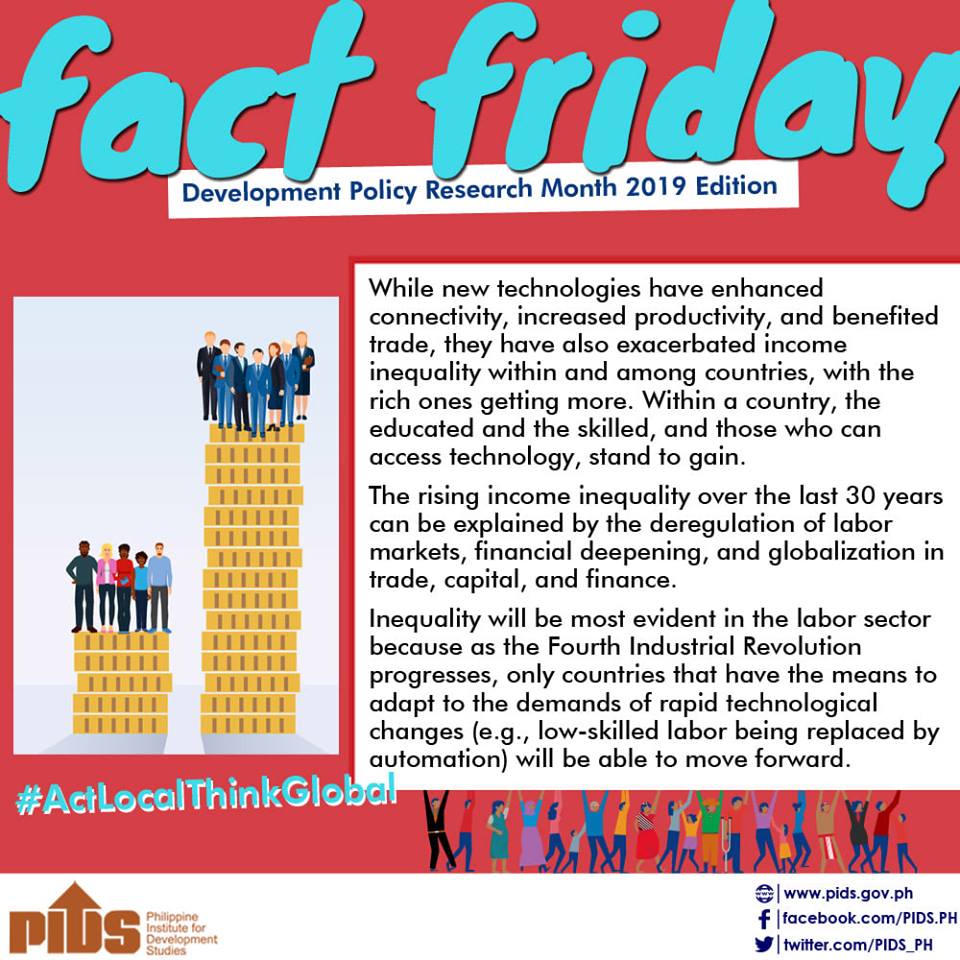
While new technologies have enhanced connectivity, increased productivity, and benefited trade, they have also exacerbated income inequality within and among countries, with the rich ones getting more. Within a country, the educated and the skilled, and those who can access technology, stand to gain.
The rising income inequality over the last 30 years can be explained by the deregulation of labor markets, financial deepening, and globalization in trade, capital, and finance.
Inequality will be most evident in the labor sector because as the Fourth Industrial Revolution progresses, only countries that have the means to adapt to the demands of rapid technological changes (e.g., low-skilled labor being replaced by automation) will be able to move forward.
Know more about worsening inequality trends and other features of the New Globalization, and the opportunities they bring to the Philippines, through this year’s celebration of the 17th Development Policy Research Month (DPRM) with the theme "Navigating the New Globalization: Local Actions for Global Challenges".
Visit the DPRM website (https://dprm.pids.gov.ph/) and download the PIDS study, "Understanding the New Globalization: Implications for the Philippines” (https://www.pids.gov.ph/
Visit the DPRM website (https://dprm.pids.gov.ph/) and download the PIDS study, "Understanding the New Globalization: Implications for the Philippines” (https://www.pids.gov.ph/
Gallery Images:



